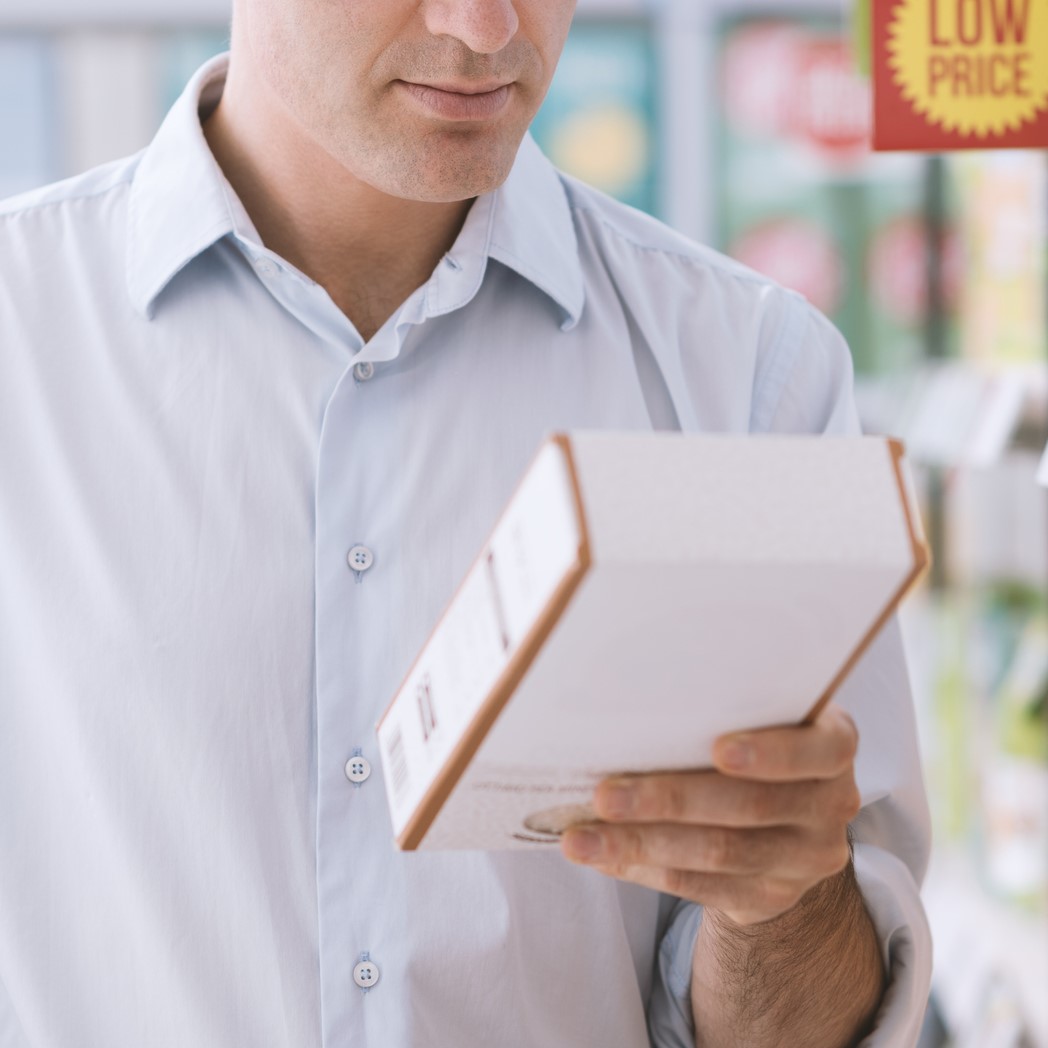Be allergy-aware and learn how to prevent allergic reactions.
Read ingredient labels
When checking food labels for your allergens, read the ingredient list to ensure the product does not “Contain” or “may contain” your allergen. Do the Triple Check:
- Once at the store before buying it.
- Once when you get home and put it away.
- Again before you serve or eat the products.
Tips
- If you do not recognize an ingredient, if there is no ingredient list available, or if you don’t understand the language written on the packaging, avoid the product.
- Check with manufacturers directly if you are not sure if a product is safe for you.
- Be careful when buying products from abroad since labelling rules differ from country to country.
- Learn more about how to read food labels.
Be prepared
- Have an Anaphylaxis Emergency Plan and share it with the people in your life. This plan is important to share with teachers and caregivers, or workplaces as it list’s the person’s allergies, the signs and symptoms to watch for, and the emergency procedure to follow.
- Follow our guidelines for kitchen safety. These include:
- Avoid cross-contamination.
- Wash hands before and after preparing food.
- Always read ingredient labels.
- If you are a parent, take steps to educate everyone in your child’s life (including teachers, relatives and babysitters) about preventing, recognizing and treating anaphylaxis. For more information, visit our Educating other caregivers page. You can also suggest they take our free AllergyAware.ca course – it’s a free 30-min online course that’s easy to take and very interactive.
- Always carry your epinephrine auto-injector.
- Make sure it has not expired.
- Practice with an auto-injector trainer on a regular basis.
Resources
- Caring for a child with food allergy – A guide on what you need to know: This guide provides easy-to-understand information that’s essential for managing food allergy and anaphylaxis. Share it with grandparents, babysitters, coaches, and others who provide care for children with food allergy.
- English
- French
Parties and going out
- Talk to the host of an event about your allergies, preferably days or weeks before the event.
- If you are attending an event where you are unsure if the food will be safe, make yourself a meal beforehand.
- Keep in mind that alcohol affects your judgement.
- If you are a parent, visit our Children’s parties page to learn more about play dates and birthday parties.
- If you’re a teen or young adult, visit our Dating and Partying page.
- If you’re eating out, visit our Dining out page.
Remember
- Before leaving the house: Do I have my epinephrine auto-injector?
- At the restaurant: Do the waitstaff and kitchen staff understand my allergy and know to prevent a reaction?
- Before making a snack or meal: Did I read the ingredients, including any precautionary labelling, like “may contain” statements?
In case of a reaction
Know the signs and symptoms
- Reactions can differ each time. Remember, an allergic reaction can start with mild symptoms that can get worse quickly.
- Reactions can look different each time. A person can have a severe reaction without having hives, for example.
- Remember, your epinephrine auto-injector can save a life. When in doubt, use it.
Take action
- Give epinephrine, then call 9-1-1.
- When giving epinephrine, have the person sit or lie down, depending on the symptoms.
- Once epinephrine has been given, place the person on their back (if they are not already lying down) with their legs raised while waiting for the ambulance. Someone who is having difficulty breathing should be kept sitting up or in a position of comfort. If the person feels sick or is vomiting, place them on their side so that their airway is clear and they do not choke on vomit. An unconscious person should also be placed on their side.
- A second dose of epinephrine can be given as early as 5 minutes after the first dose if there is no improvement in symptoms.
- Do not have the person sit up, stand up, or walk to the ambulance. This can cause dangerous complications.
- Travel to the hospital together. The hospital will treat and monitor symptoms.

